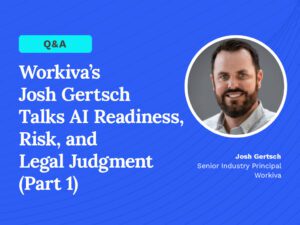The Future of Legal Ops: From Workflow Automation to Agentic AI
October 6, 2025

Lauren Burnside of Mitratech reports that the evolution of workflow automation to agentic AI has reshaped the future of legal ops. Legal ops has long relied on workflow automation to streamline processes, enforce accountability, and generate actionable insights. In 2025, that foundation evolved into something more powerful: agentic workflows, where AI actively drives outcomes and transforms legal work from reactive to strategic.
The shift began with traditional workflow automation, which standardized tasks such as matter intake, contract approvals, and compliance reviews. By embedding “if, then” logic into everyday processes, legal teams gained structure, visibility, and data that enabled continuous improvement. This early discipline established a culture of accountability and readiness for change, which is essential for larger transformations.
The next stage introduced AI as a supportive layer, helping to classify documents, summarize contracts, and spot potential risks. While useful, AI largely served as an assistant rather than a driver of outcomes. The real change has come with agentic workflows, where AI becomes an active participant, routing matters, drafting initial responses or flagging compliance process anomalies, recommending next steps, and automatically updating workflows.
For the agentic AI model to succeed, workflow automation software must provide the necessary groundwork. It ensures data hygiene, embeds governance and security, and builds user adoption, all essential prerequisites for AI. Once this foundation is in place, automation and AI work in tandem to deliver efficiency and strategic foresight. Together, they enable predictive operations, informed decision-making, and scalable innovation.
Industry research suggests that automation alone can reduce errors by half and increase efficiency by 40%. When combined with AI, those gains are magnified, offering legal ops professionals a unified, adaptive platform that evolves with business needs. From workflow automation to agentic AI, workflows have undergone significant transformations, creating a multiplier effect that reshapes the future of legal operations. This future lies not in replacing human judgment but in elevating legal teams into proactive strategists through intelligent, agent-driven workflows.
Critical intelligence for general counsel
Stay on top of the latest news, solutions and best practices by reading Daily Updates from Today's General Counsel.
Daily Updates
Sign up for our free daily newsletter for the latest news and business legal developments.




